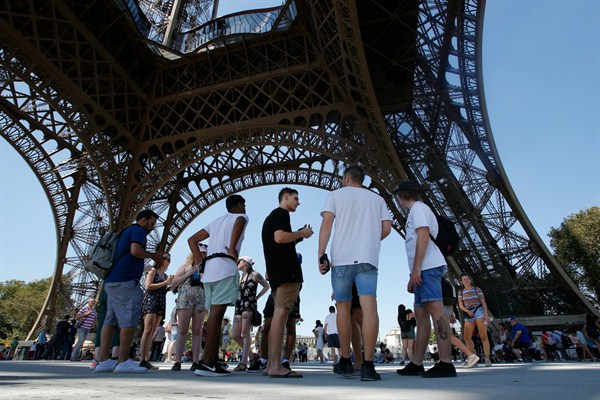PARIS—What does the world look like when you’re not watching it? Every year at the end of August, I have the chance to answer that question when, for two weeks, I unplug and check out of the online media sphere. Often, with the help of my archaic non-smart phone, I’ve been able to remain entirely out of reach of the internet and email. This year, I limited my “staycation” news consumption to a morning glance at The New York Times homepage.
By some odd fluke, my August media fast has often meant learning about major news events the old-fashioned way: word-of-mouth reports from friends or acquaintances that led to a quick jaunt to the local newsstand for a glance at the front pages. The five-day war between Russia and Georgia in 2008 and Barack Obama’s reversal on threatened air strikes against Syria in 2013 both occurred in August. In 2014, walking down the street in Lima, I saw a headline in a Spanish-language Peruvian newspaper that suggested Russia had put its nuclear forces on red alert. With no way of actually checking what was going on, I figured I’d learn of any cataclysm in due time. I never did find out what that headline was about; to the best of my knowledge, no nuclear exchanges took place that summer.
This year, too, no wars—nuclear or otherwise—broke out. But as always, my two weeks away from the daily news cycle reminded me how “the world” we talk about when we discuss international affairs is in many ways an abstraction. Compared to the much more real and concrete small corner of the world that each of us actually inhabits, the world of the international news media is an intellectual construction, beginning with the national identities at the heart of it, which grow out of collective narratives akin to mythmaking. In our discussions about this abstract world, individual leaders usually overshadow the actual people who make up the nations they govern, and country names function as monolithic stand-ins for what are in reality heterogeneous and often contested communities of actors. The headline might read, “Russia Invades Georgia,” but the reality involves a far greater and more complicated cast of characters.

